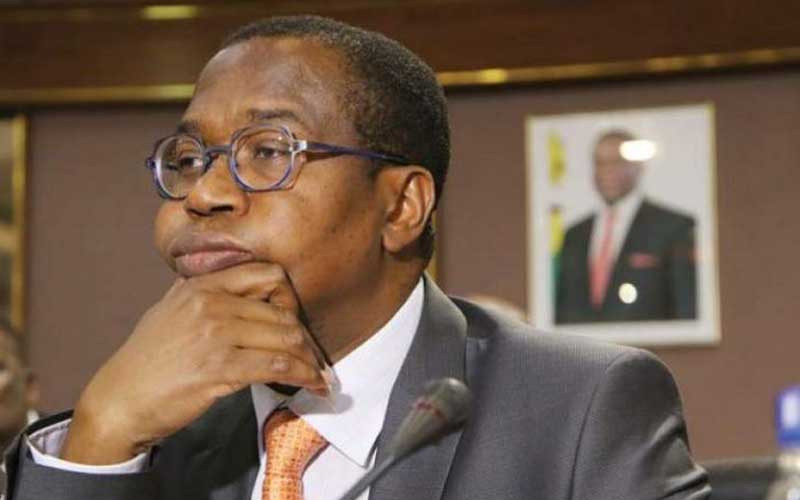
THE 2023 National Budget presented by Finance and Economic Development minister Mthuli Ncube last week failed to bring relief to the ordinary citizen already burdened by the devastating impact of an economy in turbulence.
Ncube, in his budget presentation, maintained the unpopular 2% Intermediated Money Transfer Tax (IMMT).
Under the IMMT, two cents per dollar tax is added to transactions between ZW$10 000 and ZW$500 000 to hike revenues and lower government borrowing, specifically via the issuance of Treasury Bills and a Reserve Bank of Zimbabwe (RBZ) overdraft facility.
This tax has been widely condemned as an extra burden on the country’s citizens already struggling to make ends meet in an economy ravaged by three-digit inflation figures of 255%, currency volatility and power outages.
Similarly, the business sector also added its voice to the removal of the tax.
Before the presentation of the budget last week, Zimbabwe Congress of Trade Unions (ZCTU) secretary-general Japhet Moyo had said workers have borne the brunt of the tax and must be repealed.
“Any move that burdens the worker must be reversed. The worker as the consumer is the one most affected by the tax as businesses simply pass on the cost to them. So it must be removed,” Moyo said.
Business member organisations such as the Zimbabwe National Chamber of Commerce, Employers’ Confederation of Zimbabwe (Emcoz), Confederation of Zimbabwe Industries as well as the Zimbabwe Farmers Union also called for the tax to be removed.
- Prices continue to skyrocket
- Restrictive SIs rile business
- IDBZ in tax miscalculation gaffe
- Hunger stalks region
Keep Reading
Such pleas, however, have fallen on deaf ears as the unpopular tax remains in place which, according to labour market analyst and former Emcoz executive director John Mufukare, means more pain for both businesses and individuals.
“These are bread and butter issues that need to be addressed. When the tax was introduced everyone thought it would be a stopgap measure for the government to improve its revenues before removing it,” Mufukare said.
“However, the government has kept it in place. It means that business will continue to struggle and you and I know the cost will be passed on to the customer.”
Mufukare said the cost of the tax would hurt the country’s competitiveness, increasing the cost of production and discouraging investment.
“Keeping the tax is good for the government however the good is less than the harm caused by the tax,” he said.
Despite the IMMT staying, the health sector has remained in the doldrums.
Ncube’s allocation towards the provision of healthcare services was only 11% of total revenue, which is inadequate and falls below the stipulated 15%.
In April 2001, African Union (AU) countries met in Abuja and pledged to allocate at least 15% of their annual budgets to improve the health sector and urged donor countries to scale up support.
The health sector has been in a parlous state characterised by a lack of basic drugs, run-down public hospitals as well as poor working conditions that have resulted in the exodus of at least 4 000 health workers in the last year.
Community Working Group on Health (CWGH) executive director Itai Rusike said the health sector remains grossly underfunded.
“The health budget remains grossly inadequate to fund the critical needs in the health sector. The current health financing model remains unsustainable as it heavily relies on external financing as well as out-of-pocket spending,” Rusike said in his analysis of the budget.
“Despite the huge external support from development partners, there is still a huge financing gap in the health sector in the country which calls for greater innovation and commitment by the government to sustainably address it.”
Workers who have become accustomed to the announcement of a tax-free component of the annual bonus were surprised when Ncube did not mention any relief for the thirteenth cheque in his budget presentation last week.
He did, however, announce that value-added tax (VAT) will be increased from the current 14,5% reinstating it back to 15% with effect from January 1, 2023.
Consumers pay VAT when they buy food, and pay for water, electricity and other services.
For the former ZCTU president, Peter Mutasa, the budget presentation in Zimbabwe dollars at a time it has been losing value to the greenback was an exercise in futility and would not improve the lives of citizens.
“Sadly, the government is now taking these processes as mere annual rituals that do not change any material conditions. For as long as the budget is in the local Zimbabwe dollars it remains meaningless,” Mutasa said.
“Inflation and currency devaluation will soon wipe the allocations out and the minister will call for a supplementary budget. As a result, all the allocations made to ministries that are expected to improve people’s lives will not make any meaningful change.
“We must brace for more erosion of wages, pensions and savings. Even the allocations to government workers’ salaries increased to 52,4% of the budget will not materially change the lives of workers due to inflation and currency devaluation,” he added.
Mutasa said workers expected more tax relief in the budget to cover for the impact of inflation, but this has not happened.
“So this budget is divorced from the realities of the ordinary man and does little to instil hope for a better 2023,” he said.






